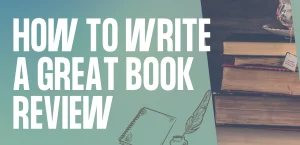
Home » How to write an autobiography in 5 simple steps
How to write an autobiography in 5 simple steps
In recent years, the sales revenue of autobiography and Memoirs have elevated to 26%, motivating people to invest more time in writing their autobiographies. However, not all autobiographies are equally successful, as writing a piece of non-fiction is not a cup of tea. Moreover, not everyone is a professional writer. Fortunately, you can write your story if you know the simple techniques to craft your story. If you are looking forward to starting your biography, you have landed in the right place. Bellevue Publishers will guide you with simple steps, making autobiography writing a breeze for you.
Map your life in a time frame.
Start writing your autobiography by researching your own life. Creating a timeline of your life is an excellent way to ensure you include all the most important dates and events. It will give you a structure to build upon.
Numerous characters in every individual’s life are crucial to moving a story forward. Figure out the most influential: your parents, siblings, fast friends, spouse, children, etc. Move ahead of the immediate family members, and don’t forget to add characters that always had a significant impact on your life.
Some teachers, trainers, employers, and co-workers leave a notable impression. Even the first high-school or college intimate relationships can influence the rest of your life.
Brainstorm your life events.
Start gathering the most crucial events that have dramatically changed your overall personality. Avoid adding irrelevant events. It will stretch the narrative unnecessarily, consequently making the entire autobiography dull.
Write engaging narratives for the critical events of your life that can captivate readers. Play around the significant happenings and create a chain of major small events to form a big picture. Readers are more inclined to emotions. So, you might have to dramatize some events to add more feelings to your story and make it catchy for your readers. Emotion is a captivating ingredient in a biography, even if there’s not much in your life to do with emotions.
Dreaming of Writing a Best-Selling Novel? Let's Make It Happen!
Craft your story
People interested in reading autobiographies have an unquenchable urge to know how it feels to be someone else. Other than that, autobiographies are a great source of inspiration. The central concept of writing an autobiography is to positively influence others by revealing their success story despite all the deadliest challenges.
Unlike school essays or some other non-fiction books, autobiographies want engaging ideas to incorporate into them. Simply telling your story to someone straightforwardly would make it bland. Be creative to narrate it in a way that would keep one reading ahead. It’s merely about showing the readers your tale and not telling it. Besides, best autobiographies do not contain formal words.
Write your heart out just like saying something to your best friend whom you can have blind trust on. Remember to say everything using simple words instead of complicated vocabulary. Be true to reveal every critical detail about yourself. Don’t hesitate to tell the world even if you’re not funny or believe in spirituality.
Edit Your Manuscript
Once you complete the manuscript, please review it and check all the errors thoroughly. Make sure the chronology of events has a perfect placement: all the crucial dates, descriptions of significant happenings, characters, etc., become a part of the manuscript.
Cross-check multiple times because publishing invalid information about yourself will be against the principles of writing an autobiography. Reviewing the first draft would help highlight more significant mistakes that can be fixed by re-organizing paragraphs and changing chapter positions. If you want your book to be more professional, we suggest you hire a qualified editor for the developmental editing of your manuscript.
Go for self-editing to catch the most monotonous words and scenarios, and rewrite paragraphs where needed to keep the flow of your narrative smooth. Rectify grammatical or spelling errors to make the manuscript sound professional.
Self-Publish it
Not everyone writes an autobiography for selling purposes in a global market. Often people want to keep a black-and-white version of their lives. They also want to publish a few copies to give to people featured in the book as a gift or recognition.
Look for companies that provide fine publishing, printing, and seamless shipping services to your part of the world and decide how many copies you’d want. Figure out your budget and then order a paperback or hardcover book. Remember, the former will cost you less than the latter.
It is wiser to leave the conventional publishing methods in favor of self-publishing your book because the latter is becoming a trend for its convenience and flexibility. This practice is both time and cost-effective and helps authors stay trouble-free throughout.
Research online publishers and start doing it yourself with complete control over the entire publishing process.
5 Pro-Tips To Write an Autobiography
If you want to create an autobiography but, before even beginning to write your own story, feeling confused, follow these tips and become a pro in this genre:
- Read some of the greatest-ever autobiographies to get clarity. The finest authors include The Diary of a Young Girl by Anne Frank, Long Walk to Freedom by Nelson Mandela, Benjamin Franklin, and Malcolm X.
- Predefine who your core audience is going to be. It will drive words, voice, and overall structure to craft your tale.
- Collect all the valuable memories from the most relevant sources. Add all the key five senses by answering the What?, Why?, Where?, When?, and How? Questions.
- Properly organize and develop comprehensible chronological order in which events took place. Be succinct and avoid extra information about yourself. Captive readers by making them feel they’re reading about their own life.
- Take the help of online free or paid tools to avoid errors that may affect readability. Make sure your manuscript has zero syntax or grammatical mistakes.
Final words
Following the five tips above will help craft successful autobiographies. Due to the emphasis on well-established narrative building, autobiographies have one thing in common with other fictional genres. It is important to teach beginners the significance of story-telling in this genre.
Bellevue Publishers understands and emphasize the need to learn the skill of story-telling, thus, helping many authors hone the craft of creating beautiful self-tales.
Developing characters, themes, and plots, showing conflict, and resolving those all make up a grand narrative. All of these elements are essential parts of an exciting autobiography.
Ready to Write Your Best-Selling Masterpiece?
Related Posts

The Simplest Way to Get an ISBN Number as a Self-Published Author
As a self-publishing author, it is important that you know how to get an ISBN number. You can get your own ISBN barcode for your book by purchasing it from

Top 10 Best Book Publishing Companies in 2024
It is a desire of every writer to be published someday. It is natural to want this recognition after spending many months, even years, for some people, writing a book.

Best Book Formatting Software and Tools for Paperbacks
Writing your book and finishing that final draft is therapeutic. But getting it published is a headache for most writers.When you self-publish, it is usual for writers to keep in

ISBN vs ASIN: Which One to Choose
You’ve finished writing and editing your dream book. Now what? It is time for you to hit that exciting publish button and share your story with the world. But it

Top 10 Best Book Publishing Companies
Introductionwrite a book It is a desire of every writer to be published someday. It is natural to want this recognition after spending many months, even years, for some people,

Best Practices For Writing Book Reviews
In the age of information overload, where countless books flood the market every day, the importance of a well-written book review cannot be overstated. Book reviews play a crucial role
